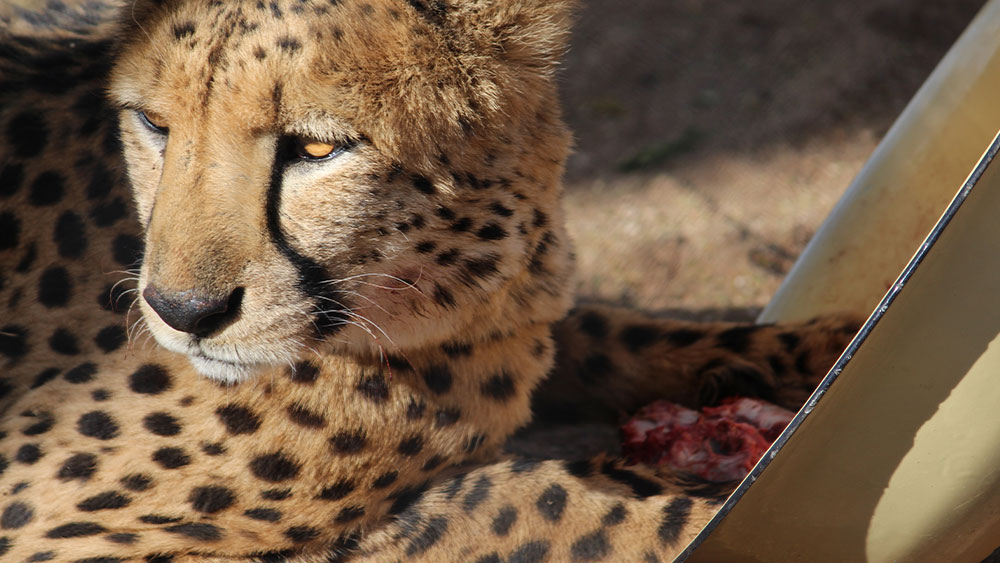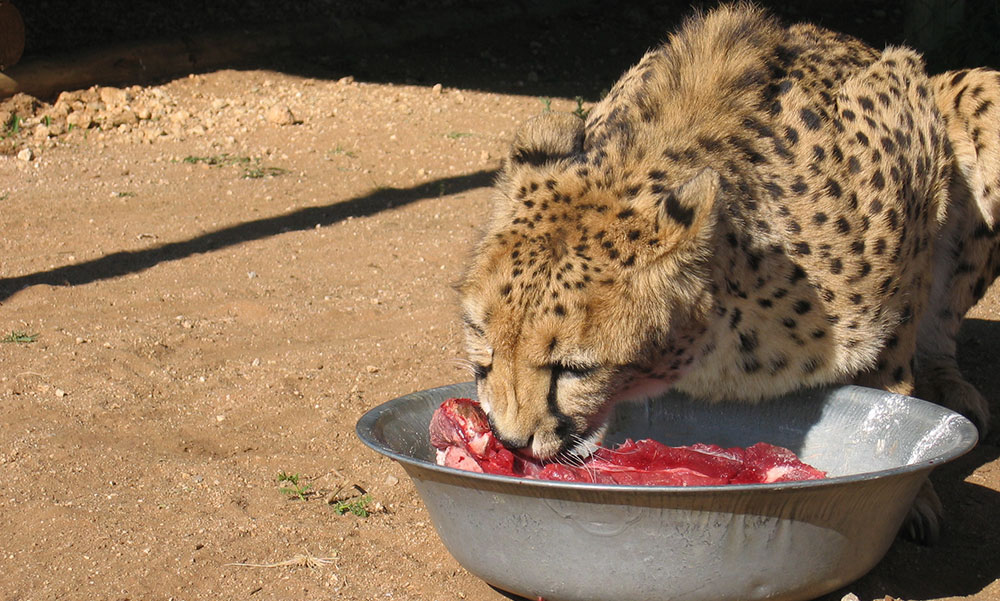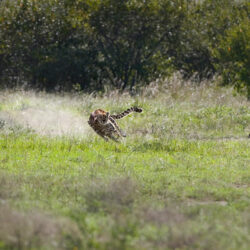GI Problems in Cheetahs Take a Punch from Probiotics
-

- by Brandy Morenko Campbell April 1, 2022

Article Summary of Effect of a Probiotic Mixture in Captive Cheetahs with Gastrointestinal Symptoms – A Pilot Study.
Authors: Sara Mangiaterra, Anne Schmidt-Küntzel, Laurie Marker, Alessandro Di Cerbo, Renato Piccinini, Davide Guadagnini, Maria Elena Turba, Sara Berardi, Livio Galosi, Silvia Preziuso, Matteo Cerquetella and Giacomo Rossi.
Cheetahs in captivity are frequently affected by gastrointestinal illnesses that can become chronic, severe, and even lead to death. The disease process is multifactorial, but affected captive animals are usually infected with Helicobacter organisms and show signs such as vomiting, diarrhea, decreased appetite, and weight loss. The use of probiotics has gained recent attention in human medicine for their ability to modulate inflammation and the immune system in ways that show benefit in the treatment of Helicobacter infections and other gastrointestinal issues. CCF researchers in collaboration with researchers from the University of Camerino, Italy, recently set out to see if probiotics could be used as a potential treatment for gastrointestinal illnesses in cheetahs.
Two groups of cheetahs known to have gastrointestinal issues, one housed at CCF in Namibia and the other located at two Italian zoos, Parco Zoo Falconara and Le Cornelle, were selected for the study. Cheetahs were evaluated for the presence of helicobacter in their stool and for their gastrointestinal health. Approximately half of the CCF cheetahs were positive for the presence of helicobacter and had mild symptoms, while all the zoo-housed animals were infected with the bacteria and symptoms were more pronounced. For this investigation, all helicobacter positive cheetahs received a daily dose of probiotics that contained a mixture of 8 strains of live bacteria containing at least 200 billion bacteria for three weeks. The animals were closely monitored during the study and their intestinal symptoms scored both before and after the treatment.

The data was analyzed, and results showed that the more severely affected animals did have noticeable improvement in their symptoms after receiving probiotics. Animals experienced improved stool consistency, less vomiting, and showed no side effects associated with the daily dosing. These results point to an exciting and new safe supportive therapy option for captive cheetahs that are so often afflicted with gastrointestinal illnesses. Further investigation into probiotic therapy in cheetahs will be very important going forward. Additional studies will elucidate the benefits and success rates associated with using probiotics together with standard antibiotic and proton pump inhibitor-based treatments and as a stand-alone treatment option.
Related Reading
-
October 15, 2024
The Ecology of the Landscape Down to the Smallest Part




